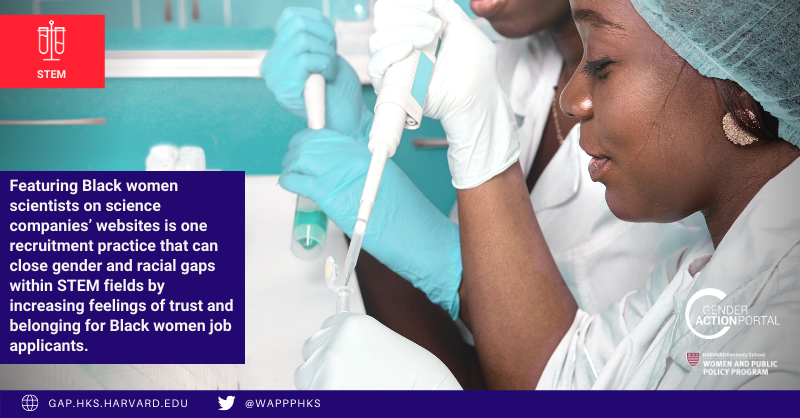February is Black History Month when we celebrate the contributions and achievements that African Americans have made to history. This month also highlights the need to dismantle the barriers that Black communities have continued to face due to white supremacy and institutional racism.
In our ongoing commitment to working toward equity and justice for all, WAPPP's Gender Action Portal has compiled a list of actionable interventions that advance both gender and racial equity, with a specific focus on how we can address issues that are unique to Black women. Explore the summaries below for the latest research evaluating the impact of specific policies, strategies, and organizational practices to advance gender equity.
ACADEMIC ACHIEVEMENT

Read more
STEM

Read more
POLITICAL REPRESENTATION

Read more
WORKPLACE DIVERSITY & INCLUSION

Read more
Are there any other articles that focus on Black women that should be added to the Gender Action Portal? Do you have any feedback on how we can make this tool more equitable and intersectional? Please contact Anisha at anisha_asundi@hks.harvard.edu